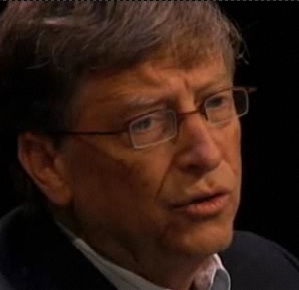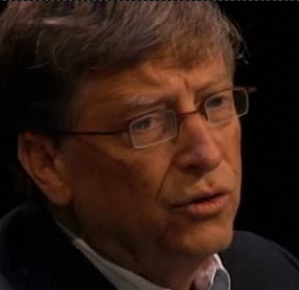
After the nuclear disaster in Japan at the Fukushima reactors, the general public is understandably skittish about nuclear energy once again. But not Bill Gates. Speaking today at a Wired business conference in New York City, he is talking up the benefits of nuclear energy, particularly next-generation designs. The backlash, he thinks, is overblown. “If you compare it to the amount that coal has killed per kilowatt hour,” he points out, “it is way, way less.” When an accident does occur, however, its effects are much more visible. “Coal kills fewer people at one time, which is highly preferred by politicians,” he says.
Gates is putting his money where his mouth is. He is an investor in his friend Nathan Myrhvold’s nuclear reactor startup Terrapower, which is designing one such next-generation nuclear reactor which produces one thousandth as much radioactive waste. But he also has investments in “dozens” of other energy companies, from battery companies to solar to biofuels. “We should pursue them all,” he says. “The amount of IQ working on energy today and the tools they have to simulate compared to 20 years ago is night and day, but it is unpredictable whether we will get a breakthrough.”
Solar and wind power have great potential, but they are intermittent sources of power. That is why Gates is bullish on nuclear. Advances in energy are necessary for the economy in general to keep moving forward, he argues. Gates sees three main problems which need to be addressed: cost, security, and environmental impact: “Other than it is too expensive, you can get cut off at any time, or it can destroy the planet, it’s okay.”
Cost is the key challenge new energy sources must surmount. “We get sloppy” in the rich world, he says, because we can afford to pay extra for solar or wind power. But in order to make a real impact, the costs have to become competitive with current fossil-based energy. “In 80% of the world, energy will be bought where it is economic.” says Gates. “You have to help the rest of the world get energy at a reasonable price.”
WHat about distributed energy where every house generates their own and feeds it back into the grid? Gates thinks that is a “cute” idea, but “it’s not gonna happen.” Bigger power generation facilities, such as solar fields in the desert, are necessary. “If you are going for cuteness, go after the those things at the home. If you want to solve the energy problem go after the big things in the desert.”
